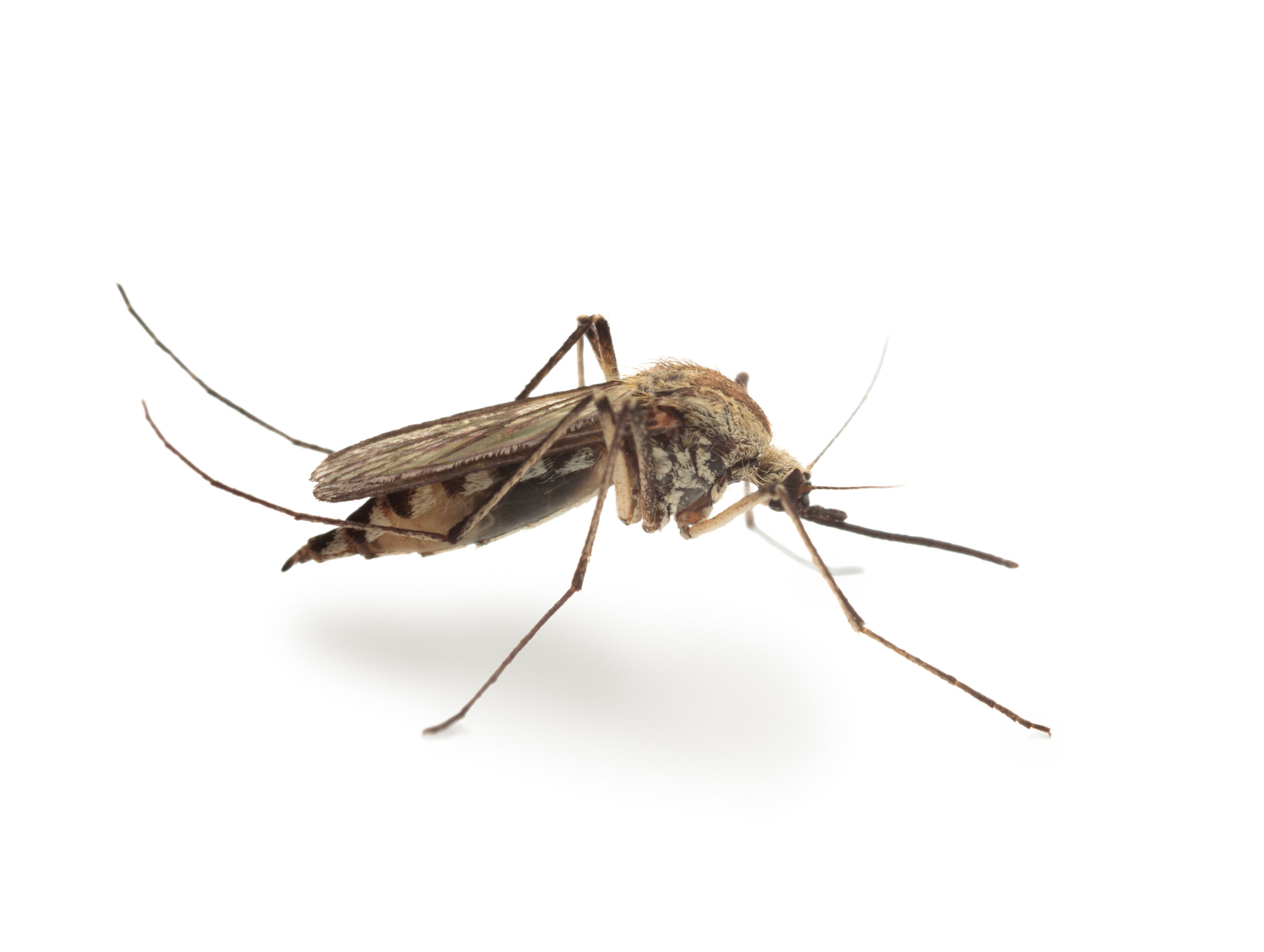Ever wonder why mosquitoes seem to disappear in the winter but come back in full force during the warmer months? Seasonal changes play a huge role in mosquito populations and how we deal with them.
As temperatures rise, mosquitoes become more active, breeding quickly and making outdoor time less enjoyable. But did you know that effective mosquito removal strategies vary depending on the season? From spring’s prevention efforts to summer’s full-on battle and fall’s focus on minimizing the next year’s population, each season requires a different approach.
How Do Temperature Fluctuations Influence Mosquito Breeding Cycles?
Temperature plays a crucial role in the life cycle of mosquitoes. Here’s how fluctuations affect breeding cycles:
- Warm Temperatures (Above 70°F)
- Increased Activity: Mosquitoes become more active as temperatures rise. Warmer months (spring to summer) create ideal breeding conditions, allowing mosquitoes to reproduce rapidly.
- Faster Development: Eggs hatch more quickly in warmer water, reducing the time it takes for larvae to become adult mosquitoes. This can lead to increased populations within a matter of weeks.
- Cold Temperatures (Below 50°F)
- Reduced Activity: Mosquito activity diminishes significantly as temperatures drop. Many species enter a dormant state, seeking shelter in basements, garages, or other sheltered areas.
- Hibernation: Some adult mosquitoes hibernate during winter months, laying their eggs in insulated environments (e.g., leaf litter) that protect them from freezing temperatures.
- Seasonal Cycles
- Spring: As temperatures rise, mosquito populations begin to emerge. This is when proactive control measures can be most effective.
- Summer: Populations peak due to high temperatures and abundant breeding sites, such as stagnant water.
- Fall: As temperatures cool, populations decline. However, late summer and early fall can still present risks, particularly in warmer climates.
What Role Does Rainfall Play In Mosquito Population Growth During Different Seasons?
Rainfall is another significant factor influencing mosquito populations. Here’s how it affects them:
- Heavy Rainfall
- Breeding Sites: Standing water from rain provides ideal breeding grounds for mosquitoes. Just a few inches of water in containers, puddles, or ditches can lead to an increase in mosquito larvae.
- Habitat Creation: Flooding can create new habitats for mosquitoes, allowing them to thrive where they previously could not.
- Dry Periods
- Population Decline: Extended dry spells can lead to a decrease in mosquito populations as breeding sites dry up. Without standing water, adult mosquitoes cannot reproduce.
- Migration: During drought conditions, mosquitoes may migrate to find new sources of water, potentially increasing populations in nearby areas.
- Seasonal Patterns
- Spring and Summer: Increased rainfall in spring and summer often correlates with higher mosquito populations. Communities should prepare for active mosquito seasons by implementing preventative measures early.
- Late Summer: In regions with a wet late summer, populations can remain high even as temperatures start to fall.
How Can Seasonal Changes Impact The Effectiveness Of Mosquito Removal Strategies?
Seasonal changes can greatly influence how effective your mosquito removal strategies will be. Consider the following:
- Timing of Treatments
- Spring Treatments: Applying treatments early in the spring can significantly reduce mosquito populations before they reach peak levels. This includes removing standing water and applying larvicides in areas where water cannot be removed.
- Summer Adjustments: During peak summer months, additional treatments may be necessary, as mosquitoes reproduce rapidly. Regular fogging or spraying may be required to keep populations in check.
- Type of Control Measures
- Larvicides: Effective during warmer months when larvae are present in standing water. These treatments can prevent larvae from maturing into adults.
- Adulticides: More effective when applied during peak activity times, typically in the evening or early morning when mosquitoes are most active. However, adulticides can be less effective during heavy rainfall, as rain can wash them away.
- Environmental Considerations
- Natural Predators: Some seasonal changes can affect the presence of natural predators, like dragonflies and birds. These creatures can help control mosquito populations. Promoting a healthy ecosystem can enhance the effectiveness of mosquito control measures.
Are There Specific Times Of Year When Mosquito Control Measures Are More Necessary?
Certain times of the year require heightened mosquito control efforts. Here’s a breakdown:
- Spring
- Preparatory Actions: As temperatures rise, it’s crucial to prepare for the mosquito season. Start by eliminating standing water, applying larvicides, and considering professional treatments.
- Timing: Control measures should begin as soon as temperatures consistently reach above 50°F.
- Summer
- Peak Mosquito Activity: This is when mosquito populations typically reach their highest levels. Increased control measures, including regular treatments and community awareness campaigns, are essential.
- Monitoring: Continue to monitor local weather patterns, as unexpected rainfall can lead to sudden population surges.
- Fall
- Decreasing Populations: As temperatures begin to drop, many mosquito species will start to die off. However, late-season treatments may still be necessary, particularly in warmer regions where mosquitoes remain active longer.
- Final Preparations: Use this time to prepare for winter. Remove any stagnant water sources and clean up debris that could harbor mosquito eggs.
By understanding how seasonal changes affect mosquito populations and implementing timely removal strategies, you can protect yourself and your community from these unwelcome pests. Stay proactive, monitor environmental conditions, and adjust your mosquito control measures accordingly to enjoy a more mosquito-free environment year-round.
Why Choose Pete’s Pest Patrol for Mosquito Control?
At Pete’s Pest Patrol, we understand the challenges that seasonal changes present for mosquito control. Our team is dedicated to providing effective, customized solutions tailored to your specific needs. Here’s why we stand out:
- Expertise and Experience: With years of experience in pest management, our trained professionals are knowledgeable about local mosquito populations and their behaviors, allowing us to implement the most effective strategies.
- Integrated Pest Management (IPM): We utilize an IPM approach, combining environmentally friendly practices and chemical treatments when necessary. This ensures that we target mosquitoes while minimizing impact on beneficial insects and the ecosystem.
- Proactive Solutions: We don’t just react to mosquito issues; we focus on prevention. Our comprehensive inspections help identify potential breeding sites, allowing us to address them before they become a problem.
- Customer Satisfaction: Our commitment to quality service means we prioritize your satisfaction. We offer flexible scheduling, thorough follow-ups, and a satisfaction guarantee, ensuring you have a pest-free outdoor space to enjoy.
Take Control of Mosquitoes Today!
Don’t let mosquitoes ruin your outdoor enjoyment! Contact Pete’s Pest Patrol for a free consultation and personalized mosquito control solutions. Our expert team is ready to help you reclaim your yard and protect your family from these pesky pests. Call us today or visit our website to schedule your appointment. Let’s make your outdoor space a mosquito-free haven!

